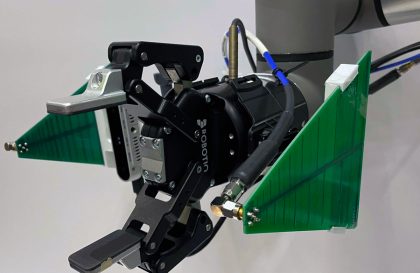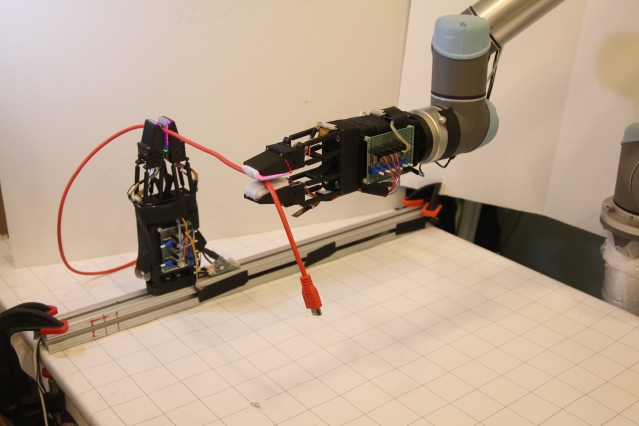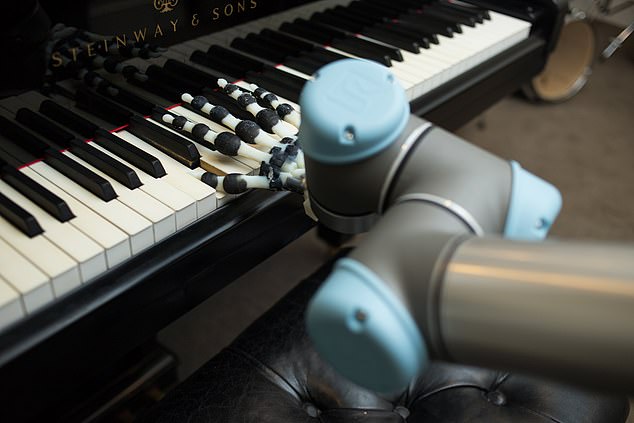 By now you’ve probably heard how robots are going to take over our jobs. And how this will leave future generations with plenty of time on their hands to take up hobbies and pursue creative interests.
By now you’ve probably heard how robots are going to take over our jobs. And how this will leave future generations with plenty of time on their hands to take up hobbies and pursue creative interests.
1. Robot singing teacher
There will be companies focused on the development of software and applications for robots that go well beyond the standard factory functions. This may include add-on singing and dance functions, or language functions, or cooking functions – and the reality of this isn’t even that far off. Softbank’s social robot Pepper – which has been a massive hit in the US and is already in use in the UK – can already sing and perform various dance moves to entertain its owner.
Off the back of this need for additional functionality, there will be a new job market created for humans to develop software and hardware which enables these robots to reach more sophisticated performance levels.
2. Robot plastic surgeon
Of course all good robots will need to be personalised, so chances are companies will pop up which allow people to update their personal robots by adding stronger limbs or faster processors.
Humans already engage in many forms of physical enhancement by exercising, using make up, or in more extreme cases, through plastic surgery. And as humans develop stronger bonds with their social robots, there will be an increased demand for companies that provide customisation options to robots.
In this way Bluefrogrobotics’ new social robot “Buddy” already offers this option – it comes with the promise of continuous upgrade options to keep the user experience as exciting and satisfying as possible.
3. Robot nurse
Just like us humans, robots will also need regular “health checks” and periodical check-ups to make sure they are performing smoothly. Being a robot technician is already an existing and well remunerated career path that has benefited from a growing industry – though to date the focus has been on the industrial arena. In the advent of the social robots revolution there will be a need for robot “nurses” that can also provide their services for this more mainstream market.
4. Robot travel agents
Chances are that people will want to take their robots with them during their travels. This is especially likely to be the case if humans have developed a strong bond towards them – such as the children’s play buddy PLEO, who can already be found in households around the globe.
Just like humans, robots also need to be able to get around the place, which will see companies focused on robotic transport coming into business. This will entail creating adequate storage for the robots – such as suitcases – as well as charging and maintenance stations outside people’s homes.
5. Organisers and judges for best (robot) in show
Research suggests that humans develop strong bonds with their pets – or even their cars – as they serve as an extension of their self. In some instances, these pets or cars can even become status symbols – motivating the owners to spend considerable money on them and to display them publicly. Scholars argue that in the near future, robots may also become part of our “extended self” – making it likely that similar events may be developed for the robot in our lives.
![]() So in the same way people enter their cat or dog into a pet show, chances are that many proud robot “owners” will also be interested in displaying their customised robots to others to gain recognition for their designs. This will lead to companies cropping up that focus on the organisation of events and meetings where “owners” display their robots
So in the same way people enter their cat or dog into a pet show, chances are that many proud robot “owners” will also be interested in displaying their customised robots to others to gain recognition for their designs. This will lead to companies cropping up that focus on the organisation of events and meetings where “owners” display their robots








